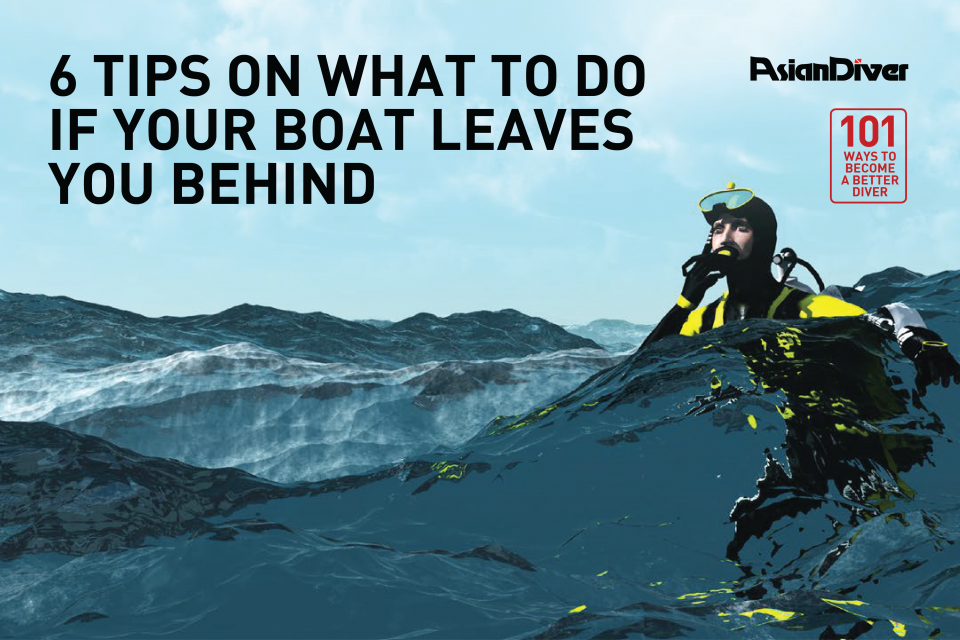6 Tips On What To Do If Your Boat Leaves You Behind

Perhaps one of the deepest fears a diver can have is being left behind. That near-perfect dive holiday can suddenly turn into a disaster with a down-current or a heavy storm. After all, the liberty diving gives us is also a compromise, sometimes, of our safety.
Being left behind is a reality that some unfortunate divers have faced. Whether it is your fault or not, you’ll need to know how to get through it. We bring you six tips on what to do if you’re left behind in open water.
1. PLAN AHEAD
No matter how many checks and procedures you go through, separations can still occur.
- Make certain that your entry into the water is properly noted by the people aboard the boat
- Have another diver who is not your buddy double-check that you’re back on board before the boat leaves
- If conditions are dangerous, don’t dive – the oceans will always be there
2. GET THE GEAR
Just you in your wetsuit is difficult to spot from the deck of a boat, and in a deep-blue ocean, you’re going to be almost impossible to pick out. Bright surface marker buoys (SMB) should be a standard in your dive kit, and there are other gadgets you can use to maximise safety
3. GATHER YOUR BEARINGS
When you come up and find that the boat is not where you thought it was, or completely gone, it is important to go through the procedure of gathering your bearings:
- Spin full circle to scan the horizon for land, other boats, or anything that you could potentially cling to
- If you can see something that will get you to safety, then drop your weights to swim on the surface – but keep your mask and regulator/snorkel, as this will help keep you buoyant
- Still with your buddy? Latch yourselves together to stop you from drifting apart
4. CONSERVE ENERGY
As soon as you realise that you have been left behind, you need to begin to conserve energy:
- If you are latched to your buddy, this will reduce the swimming that you need to do to keep together
- Keeping streamlined will help conserve energy
- If you have to swim for shore against the current, don’t swim directly into it as fighting a current will burn out your energy fast – if you must swim against the current, travel diagonally or perpendicular
5. STAY WARM
Staying warm is integral, as even in tropical waters you can get hypothermia. There are many ways in which you can try and stay warm:
- If you start to feel cold, move your arms and legs to generate heat
- To keep energy expenditure to a minimum, hug your knees to your chest and cross your feet to trap body heat and conserve your warmth
- If you’re with a dive buddy, you can share body heat by staying close
- Make an effort to keep your head out of the water
6. DON’T PANIC
As in all situations, especially in diving, the best way to deal with it is to stay calm and focused:
- Thrashing around can lead 125 to drowning and wasting of energy – stay calm
- Yelling and screaming can cause you to hyperventilate – go through the procedure
- Take deep breaths and make intentional movements and decisions to keep your mind active
Want more tips to help you grow as a diver? Subscribe to Asian Diver here or download the digital copies of our magazine here!


